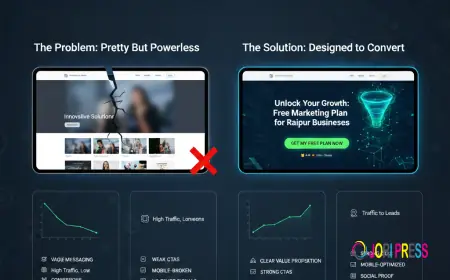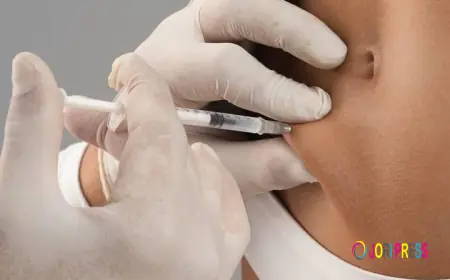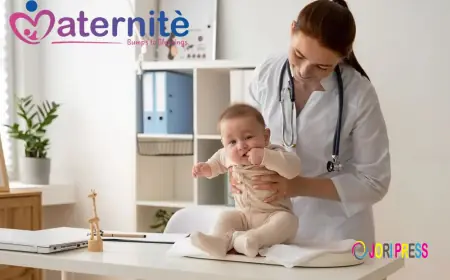Therapy or Medication? What to Expect from a Depression Doctor NYC
Wondering if therapy or medication is right for you? Discover what to expect from a depression doctor NYC and how to choose the best treatment path.
If you’re struggling with persistent sadness, fatigue, or a lack of motivation, you’re not alone. Depression affects millions of people, and living in a high-pressure city like New York can intensify the experience. Whether you’ve just started recognizing your symptoms or have been silently suffering for years, consulting a qualified depression doctor NYC can be the first step toward healing. But one common question looms large for many: will therapy be enough, or will I need medication?
Understanding what to expect from treatment can ease your concerns and help you make informed choices. Let’s explore the different approaches a depression doctor NYC may take—and how each one can support your journey toward mental wellness.
The Role of a Depression Doctor
A depression doctor NYC typically refers to either a psychiatrist (a medical doctor who can prescribe medications and provide therapy) or a clinical psychologist (who focuses on psychotherapy but does not prescribe medication). Both are trained to evaluate, diagnose, and treat depressive disorders using evidence-based methods.
When you meet with a depression specialist, their goal is to understand your full mental health picture. This includes your:
-
Emotional and physical symptoms
-
Lifestyle and stress levels
-
Medical history
-
Personal and family history of mental illness
-
Previous therapy or medication experiences
From this comprehensive view, your depression doctor NYC will recommend a treatment plan tailored to your needs.
Therapy: Exploring Your Thoughts and Behaviors
Therapy (also called psychotherapy or talk therapy) is often the first line of treatment for mild to moderate depression. A depression doctor NYC may suggest one of several therapy approaches:
1. Cognitive Behavioral Therapy (CBT)
CBT is a structured form of therapy that helps you recognize and reframe negative thought patterns that lead to depressive feelings. It is highly effective and widely used.
2. Interpersonal Therapy (IPT)
This therapy focuses on improving relationships and communication skills, especially if your depression is tied to conflict or grief.
3. Psychodynamic Therapy
This approach delves into unconscious patterns and past experiences to uncover root causes of emotional struggles.
4. Mindfulness-Based Cognitive Therapy (MBCT)
Combining elements of CBT with mindfulness techniques, this therapy helps prevent relapse by keeping you grounded in the present moment.
Medication: When Chemistry Needs a Boost
For moderate to severe cases of depression, medication may be recommended—especially if symptoms interfere with your ability to function. A depression doctor NYC can prescribe medications such as:
-
SSRIs (e.g., fluoxetine, sertraline)
-
SNRIs (e.g., venlafaxine, duloxetine)
-
Atypical antidepressants (e.g., bupropion, mirtazapine)
-
Mood stabilizers or antipsychotics (for complex cases)
These medications work by balancing neurotransmitters in the brain—mainly serotonin, dopamine, and norepinephrine—to lift mood and reduce symptoms.
Therapy vs. Medication: Which One Is Right for You?
The best treatment depends on several factors, including the severity and duration of your symptoms, your medical history, and your personal preferences. Here’s how they compare:
| Category | Therapy | Medication |
|---|---|---|
| Best for | Mild to moderate depression | Moderate to severe depression |
| Time to see results | 4-8 weeks | 2-6 weeks |
| Side effects | None | Possible (e.g., nausea, insomnia) |
| Relapse prevention | Strong if continued long-term | Better when combined with therapy |
Most mental health professionals agree that a combined approach often works best—especially for individuals with severe or recurring depression.
How a Depression Doctor Helps You Decide
A good depression doctor NYC won’t rush you into any decision. Instead, they’ll walk you through:
-
Your diagnosis and what it means
-
The pros and cons of therapy, medication, or both
-
What to expect in terms of results and timeline
-
How to manage side effects (if applicable)
-
Lifestyle changes that may support treatment
They’ll also consider your past experiences, values, and goals in making a recommendation.
What If You Start with Therapy?
If your doctor recommends starting with therapy, you may begin with weekly sessions. Therapy is a process—it requires honesty, vulnerability, and commitment. But many people report noticeable improvements in mood, energy, and self-esteem after several sessions.
Your depression doctor NYC will monitor your progress. If therapy alone isn’t helping, they may revisit the possibility of medication.
What If You Start with Medication?
If medication is prescribed, expect some trial and error. Not every antidepressant works the same for everyone, and it may take several weeks to find the right one and dosage.
Your doctor will check in regularly to:
-
Monitor side effects
-
Adjust dosage if needed
-
Track symptom improvement
-
Discuss any concerns or mood changes
In many cases, medication is paired with therapy to address both biological and emotional factors of depression.
Complementary Lifestyle Strategies
In addition to therapy and medication, a depression doctor NYC may recommend:
-
Regular physical activity
-
Improved sleep habits
-
Balanced nutrition
-
Mindfulness or meditation
-
Reducing screen time or social media
These strategies can amplify treatment outcomes and provide long-term resilience against future depressive episodes.
How Long Will Treatment Last?
There’s no fixed timeline. Some people respond quickly, while others may need ongoing support for months or years. Factors influencing the duration include:
-
The severity of depression
-
Co-occurring mental health issues (e.g., anxiety)
-
Support systems and stressors
-
Consistency with appointments and medications
The goal of any depression doctor NYC is not just symptom relief—but lasting emotional well-being.
What If You’re Still Not Improving?
If your symptoms persist despite treatment, your doctor may:
-
Re-evaluate your diagnosis (e.g., bipolar disorder or PTSD)
-
Refer you to a specialist
-
Adjust medications or switch therapies
-
Consider newer treatments (e.g., TMS, ketamine therapy)
Depression is complex, but persistent effort almost always leads to progress.
FAQs: What to Expect from a Depression Doctor NYC
Q1: How soon will I feel better after starting treatment?
Some people notice improvements within a few weeks, but for others, it may take longer. Patience and open communication with your doctor are key.
Q2: Can I take medication and do therapy at the same time?
Yes, many individuals benefit from a combined approach, which treats both the chemical and emotional aspects of depression.
Q3: What if I don’t like my medication?
Tell your doctor immediately. Adjustments or alternative medications are often available.
Q4: Will I be in therapy forever?
Not necessarily. Some people benefit from short-term therapy (10–20 sessions), while others prefer ongoing support. It depends on your needs.
Q5: Are there alternatives to traditional medications?
Yes. Options like lifestyle changes, TMS (Transcranial Magnetic Stimulation), or ketamine-based treatments may be available through your depression doctor NYC.
What's Your Reaction?
 Like
0
Like
0
 Dislike
0
Dislike
0
 Love
0
Love
0
 Funny
0
Funny
0
 Angry
0
Angry
0
 Sad
0
Sad
0
 Wow
0
Wow
0
















































